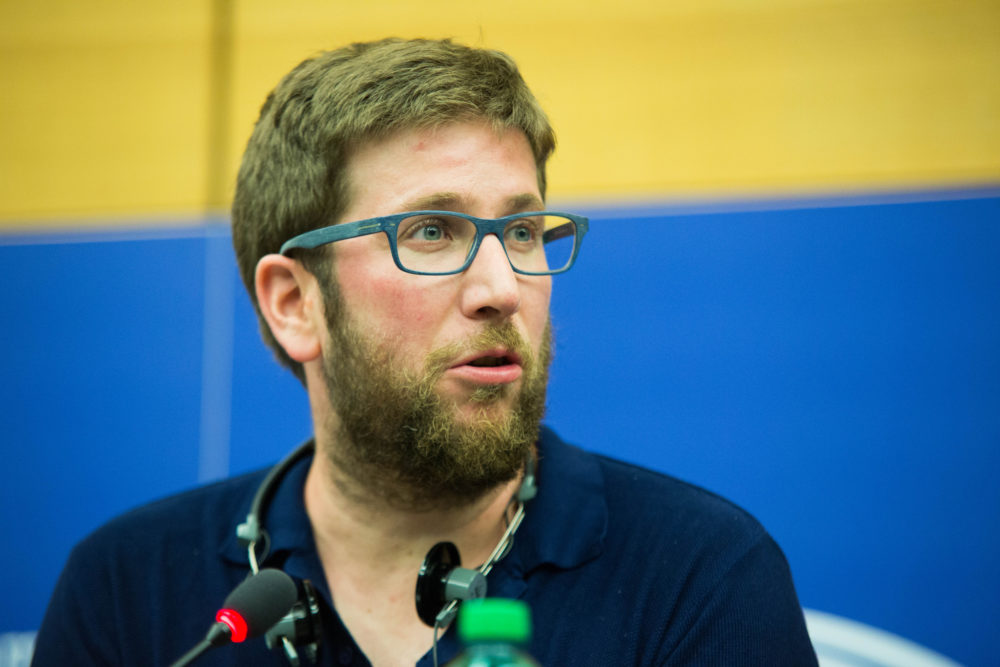2019 GUE/NGL AWARD FOR JOURNALISTS, WHISTLEBLOWERS AND DEFENDERS OF THE RIGHT TO INFORMATION
Call for Nominations
GUE/NGL has the pleasure of announcing our second annual Award for ‘Journalists, Whistleblowers and Defenders of the Right to Information’. The award was established in 2018 in honour of the assassinated Maltese journalist, Daphne Caruana Galizia, and last year it was jointly awarded to the murdered Slovak journalist, Ján Kuciak and LuxLeaks whistleblower, Raphaël Halet.
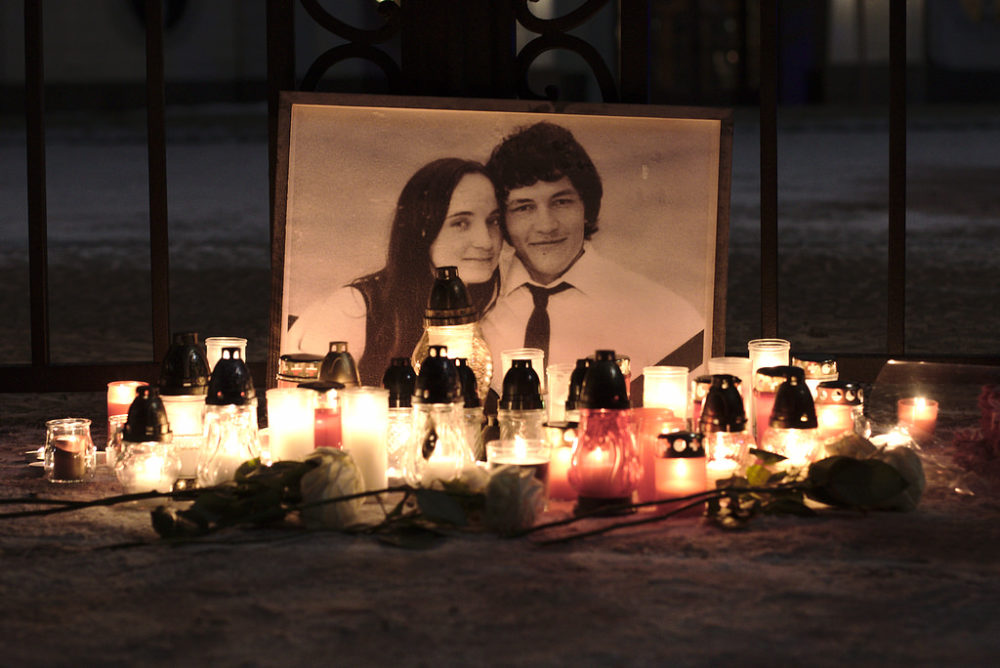
Ján Kuciak and his fiancée Martina Kušnírová. (Photo courtesy of Peter Tkac on Flickr)
This year’s award will again honour individuals or groups who have been intimidated and/or persecuted for uncovering the truth and exposing it to the public. The winner(s) will also receive €5000 which will help to support and disseminate their investigative work in an effort to safeguard and promote the freedom of press and the right to information – especially inside the European Union which still does not offer adequate legislative protection for such work.
Nominations are opened until 23h59 CET on 6th March 2019 and can be submitted by email to [email protected]. Only eligible nominees with examples of work or sufficient information (explanatory documents, press documents, audiovisual material) will be considered.
A jury of journalists, whistleblowers and GUE/NGL MEPs will deliberate over the nominations and announce the shortlist on 15th March 2019. The awards ceremony will take place on Tuesday 16th April at the European Parliament in Strasbourg.
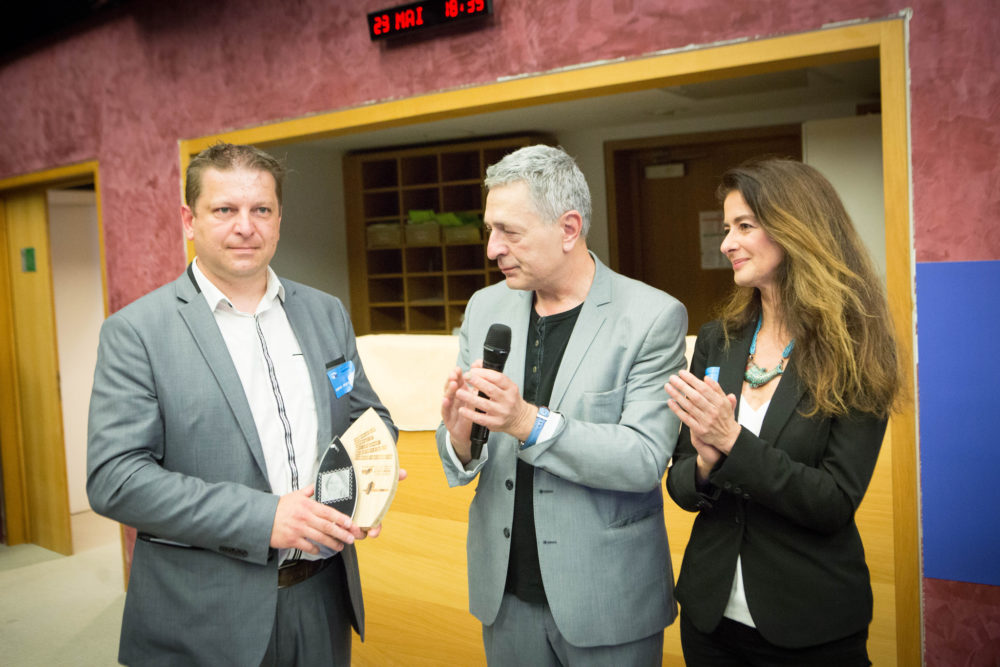
Raphaël Halet receiving his award in May 2018 at the European Parliament, Strasbourg
The dangers of being a Journalist, Whistleblower or Defender of the Right to Information in 2019
The right to information and human rights go hand in hand.
However, both have become more perilous in recent times. Indeed, there are no safety guarantees to being a whistleblower or a journalist even at the heart of the European Union.
Every day we hear about journalists and whistleblowers coming up against intimidation, threats, legal challenges and worse.
Some have support networks; others work independently and have next to no protection beyond the rule of law. But as we have seen with the high-profile murders of the investigative journalists, Daphne Caruana Galizia and Ján Kuciak in recent years, and the case against the LuxLeaks whistleblower, Antoine Deltour, EU legislation offers very little in terms of human rights protection in such instances.
Time and time again, journalists and whistleblowers are taken to court by governments, sued by multinational corporations and now, with alarming frequency, assassinated in broad daylight for doing their jobs.
By silencing their voices, the public becomes less informed, whilst the elites and governments keep their dirty secrets – and money – private.
And this is still happening in Europe right now. Can you imagine the situation elsewhere – in places like Iran, China, Saudi Arabia, Eritrea, Mexico or even the US?
According to Reporters Without Borders – one of the world’s foremost defenders of journalistic freedom and the public’s right to information – nearly half the world’s population is still deprived of their right to have access to information at the start of this millennium.
And with internet freedom also under threat with data privacy concerns and government snooping on its citizens, will our freedom of access to information also come under attack?
All the more important that journalists, whistleblowers and defenders of the right to information are given the necessary protection so that they – and we – can uphold the democratic rights and values that everyone deserves.
Daphne Caruana Galizia 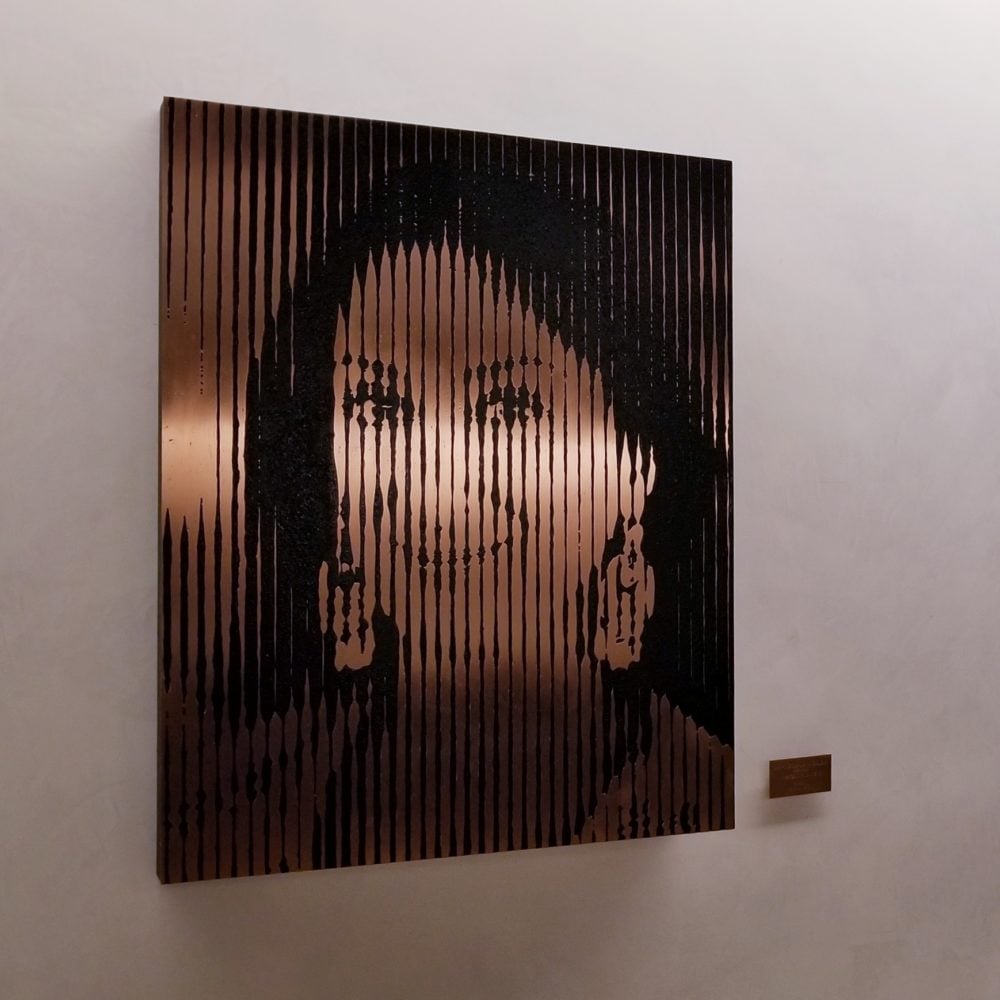
Courageous, dogged and determined, Daphne Caruana Galizia was a most formidable journalist and whistleblower whose fearless crusade to undercover the truth was what ultimately led to her brutal and untimely death in October 2017.
Assassinated in a car bomb in her native Malta, her killers remain at large and her murder unresolved. Caruana Galizia had spent years as a thorn in the side of politicians, the mafia and multinationals. Individuals with something to hide were relentlessly pursued in the name of public service.
Caruana Galizia was the embodiment of a journalist, a whistleblower and defender to the right of information. As a Maltese and a European, she truly upheld the freedom of expression as a basic human right to inform and educate.
Feared by those with something to hide, but respected by her peers and loved by her readers and followers, the voice of Malta may have been silenced but Caruana Galizia’s immense legacy lives on.
Jury:
Dr Suelette Dreyfus, journalist and academic on whistleblowers
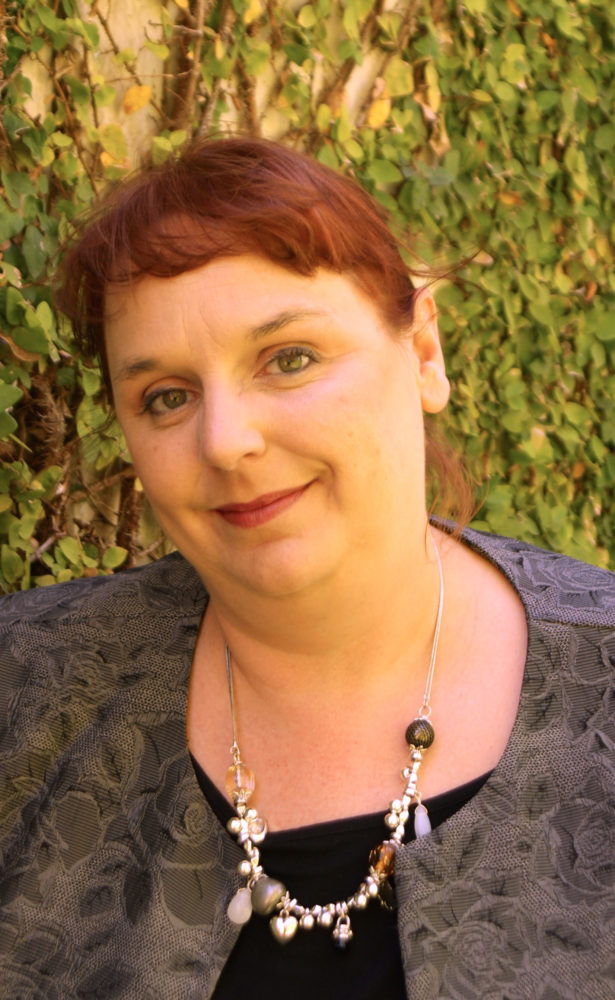
She is the Executive Director of the international NGO, Blueprint for Free Speech, which provides research, education and tools for improving freedom of expression around the globe. She is also an academic researching cybersecurity and consumer privacy at the University of Melbourne’s School of Computing and Information Systems School.
Before entering academia to earn her PhD, she was a reporter for a major daily newspaper, and then a feature writer and editor in a technology magazine. She has written numerous articles and reports on whistleblowing.
Her academic work has included publications on the impact of digital technology on whistleblowing, and the reporting of errors in hospital systems.
Stéphanie Gibaud, UBS Whistleblower
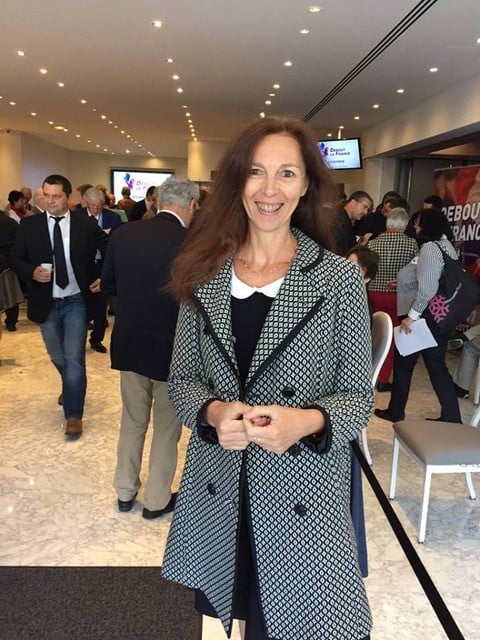
As a Public Relations specialist and author, Gibaud was working at the marketing department at UBS when she was asked to destroy documents that the bank wanted to remain secret. Had she done it, she would have gone to jail. Instead, she refused and became an internal whistleblower.
She was subsequently harassed by UBS and then by the French government in 2011. Constrained by law, she was forced to communicate confidential information to the Ministry of Finances and helped identify numerous offshore bank accounts.
She published her book, ‘La femme qui en savait vraiment trop’ in 2014 which detailed the activities of UBS and the harassment she suffered for refusing to comply to the tax evasion regime. She received the Anticor prize in January 2015 and was nominated for the Sakharov prize with Edward Snowden & Antoine Deltour in 2015.
She is one of the founders of the PILA Foundation in 2014 and of Citizens Lobbying in France in 2016.
Her second book (‘La traque des lancers d’alerte’ (‘Whistleblowers: The Man Hunt’, Max Milo) was published in October 2017.
Gibaud set up Eticare in early 2018 and now gives conferences about the importance of ethics and integrity in politics and business.
Paula Guisado, Football Leaks journalist
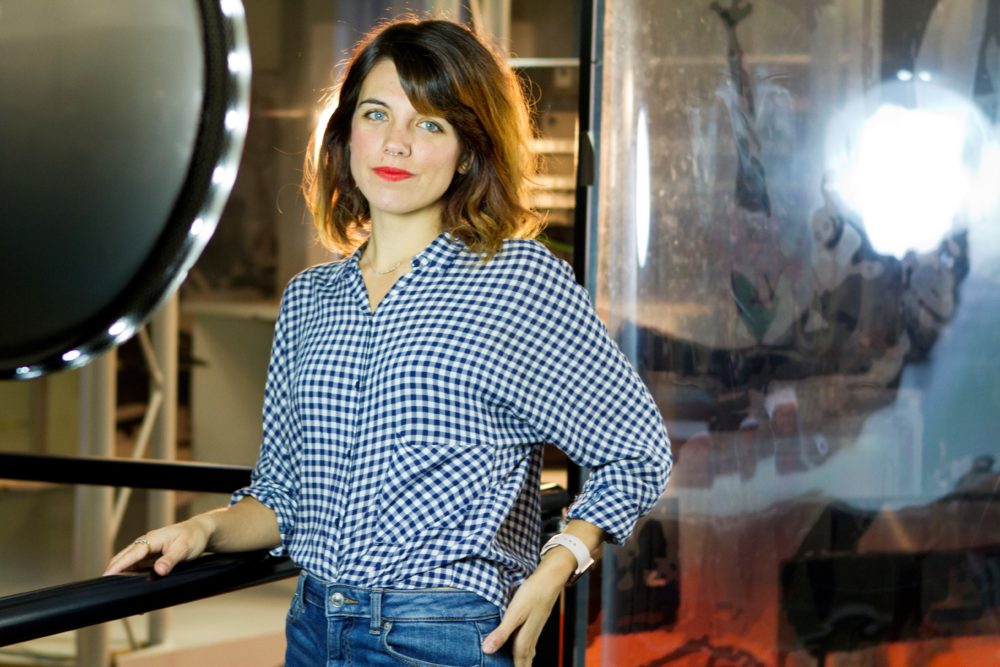
Paula Guisado is a data and investigative journalist at the Spanish newspaper, El Mundo. As a data journalist, she works on a wide range of topics, including politics, electoral data, education and gender issues.
Since 2016, she has coordinated El Mundo’s work in the European Investigative collaborations (EIC) network – an association of European media with which she has coordinated investigative projects like ‘The Weapons of Terror’ about illegal arm traffic and how those weapons fall into terrorists’s hands from eastern Europe; ‘Malta Files’, a research on how the country serves as a tax haven inside the European Union; and ‘Football Leaks’ which uncovered the dark side of the football business.
After working as a journalist in Brussels and covering a variety of European Union topics, she specialised in Data and Investigative Journalism in the first master studies of its kind in Spain. She’s been teaching Data Journalism in the same course as well as in other programmes since.
Stelios Kouloglou MEP, GUE/NGL
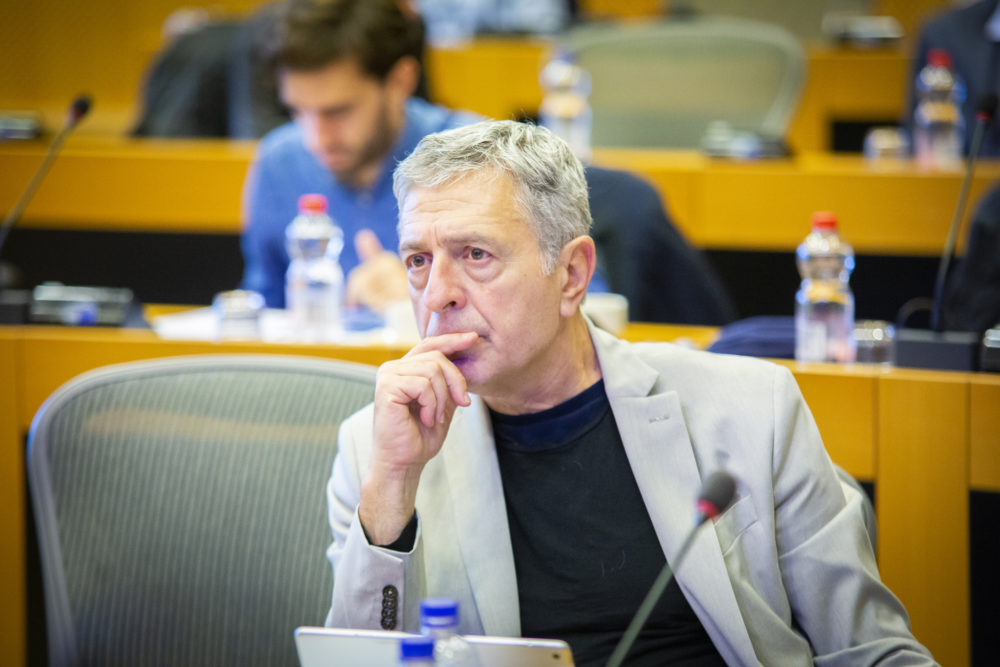
Gianna Papadakou, journalist

Born in Athens, Papadakou studied Law at the Law School of Athens. Since 1981, she has worked in newspapers, radio and television stations as an investigative journalist conducting political and judiciary reportage. Her articles on political and police corruption – including the Siemens scandal -armament brides and the Lagarde list have made headlines and led to political turmoil. She regular contributed to ERT, Alpha Tv, radio shows on Flash and Skai. Papadakou has also written for fe-mail.gr web magazine to great acclaim. Today, she hosts her own show on Alpha TV and radio, Checkpoint and Parapolitika Newspaper. She is married and has a son.
Miguel Urbán MEP, GUE/NGL
